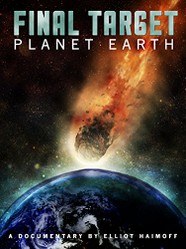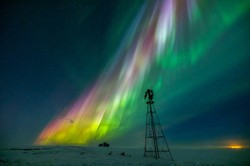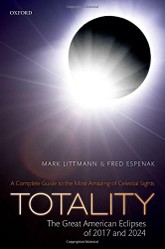First, not every impact is serious. It depends on the energy released as to how much damage is done. Size is a consideration, small objects impact the Earth every day, and in great numbers. Some are so small that they vaporize high in the atmosphere from heat generated by friction. An object the size of a grain of sand might make a streak of light across the sky, but never reach the ground.
Larger objects can and do reach the ground. In the air they are called meteors. On the ground they are called meteorites. Some meteorites are rocky, others have a high metallic content.
Very large objects, a mile or so across, or even more, bring in lots of energy. Remember that they came from way out in space, and have been accelerating not only by the gravity of the Earth, but also by the gravity of the sun and possibly some of the other planets. Think about dropping a ball. As it falls it accelerates, so the farther it falls the faster it is going when it strikes the ground. Having come so far, these objects are travelling at high speeds when they reach the ground. Their energy is calculated as half the product of their mass and the square of their speed. Energy is conserved, so all of that energy goes somewhere. Much of it goes into heat.
If the object is solid rock it may reach the ground intact. If the object has gas, or something that can vaporize into gas, like water, an explosion above the ground can occur. In either case a crater can form.
A massive explosion, whether it is airborne or on the ground, carves out a crater, throwing debris into the air. The energy raises the temperature of the atmosphere, and if the object is large enough this rise in temperature can be worldwide, causing forests to incinerate. Plant and animal life is lost if an impacting object has enough energy, including humans. Then, the debris that is thrown high in the atmosphere screens out the sun for years, dropping the Earth into cold. This impacts the initial survivors. There will be few plants and animals that will survive such an event. The food chain would be interrupted.
A large enough impact can bore down to the mantle, especially if it occurs where the Earth’s crust is thin. This would expose molten magma, and release toxic gases.









 Multivariable Calculus: Gradient, Divergence, and Curlon 12/19/2025
Multivariable Calculus: Gradient, Divergence, and Curlon 12/19/2025
 UAPs, Formerly UFOs, If They Are Real How Can We Explain Their Arrival to Earth?on 12/18/2025
UAPs, Formerly UFOs, If They Are Real How Can We Explain Their Arrival to Earth?on 12/18/2025
 Polar Coordinate Systemon 12/16/2025
Polar Coordinate Systemon 12/16/2025
 Aurora Can Disrupt Electrical Devices And Even the Grid?on 12/15/2025
Aurora Can Disrupt Electrical Devices And Even the Grid?on 12/15/2025



Comments
I am pleased this helps explain things.
I find it particularly interesting that asteroids come from between Mars and Jupiter and comets from Kuiper belt . Entirely new to me.
FACTS ! I love them.
BSG
That is FANTASTIC, Carrington, Cheshire is about 4 miles from Frank's house. Carrington would mean herding enclosure in old English place names so it is not uncommon.
Knights came into being round about 11th C onwards.
Right now Mike Brown of Cal Tech is predicting a new planet sized object in the Kuiper Belt that may be large like Neptune and Uranus. There is strong evidence of this. But, the object cannot be claimed unless confirmed. They are aggressively looking.
The other possibility is the highly speculative that we are part of a binary system, with the companion star being a brown dwarf on an elongated orbit, si it periodically disturbs the Kuiper Belt. I believe this one is over an even shorter period. It could be so dim we have not yet spotted it.
Ten, Sedna is a planet size Ort Cloud object that is currently in the Kuiper Belt, or at least that close. So, we can only speculate about these things. But things do upset the balance out there.
blackspanielgallery, What do you think of Emeritus Professor John Whitmire's research suggesting that mass extinctions every 26 million to 27 million years -- over the past 500 million years -- may result from Kuiper Belt objects dislodged by the 20,000-year orbit of Planet X? That would mean a next mass extinction 14 million or 15 million years from now.
My ancestors were located in Carrington, Cheshire, Manchester. In particular in Smythe - Carrington castle, and at least one had records showing occupation of knight. Nothing at all on the wives. I suspect it was near Ireland, for I have found three spellings of Carrington, one starting with Ker, .
Manchester at that date! Then you have gone really far back. The earliest records for Beswick, which is a Manchester surname, took me back to 1320, though we were already well established by then? What did you discover?
Frank, you usually ell me things I did not know. I have learned much from you. Oh, an interesting thing that happened last night is that my ancestry search brought me to your area. It ended up in Manchester.in the late 1000s.
Thanks, BSG. You have told me facts that I did not know. I always appreciate that.
Veronica, thanks. I added this because there is a new television series heavily being advertised, I thought there might be too many people just confused after seeing a doomsday scenario program, and we need to be clear.